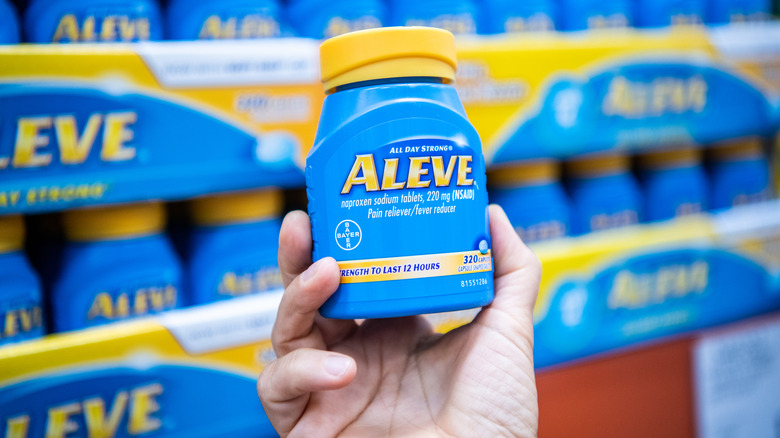Medications You Shouldn't Take On An Empty Stomach
For many of us, taking over-the-counter medication is a relatively mindless activity. We grab our medicine bottles, pop open the lid, swallow, and put them back in the medicine cabinet to go on with our day. However, we really should be more careful — medications can have a powerful impact on our bodies. While that may be exactly why we take them, it is not so wonderful when the effects are detrimental.
Whether or not to take medication on an empty stomach is one of the factors that we should keep in mind before taking any kind of medicine. According to the National Institute on Aging, taking medication on an empty stomach means that you have either not eaten in the past two hours, or you will not be able to eat anything for the next two hours after ingesting the drug. Whether or not this is advised depends on the medication; while some medications are best taken on an empty stomach, other medications are not.
You shouldn't take these medications on an empty stomach
Pharmacist Adam Trimble writes via Safe Medication that when taken on an empty stomach, some medications can cause digestive issues. These medications include some pain relievers such as Advil, Motrin, Aleve, and Aspirin. To avoid an upset stomach, it is best to take these medications after having eaten food.
Of course, these are not the only medications that should be taken with food. You should not make any assumptions, however, because there are also some medications that actually work best when taken on an empty stomach. For this reason, check your pill bottle for instructions. Often, there will be a sticker that clarifies whether or not to take the pills with food. This is one of the many reasons it is important to read the labels on your pill bottles. If you are still unsure about the safest way to take a particular medication, you can always ask your pharmacist.


